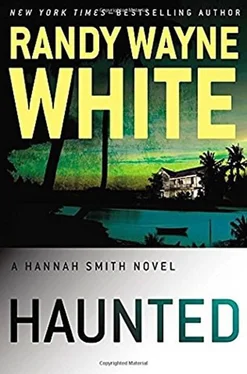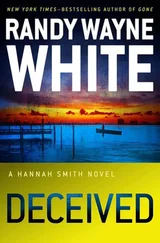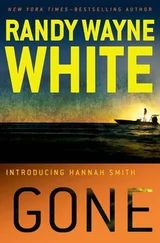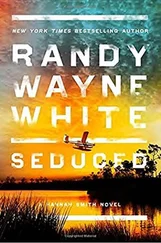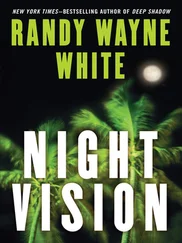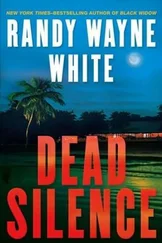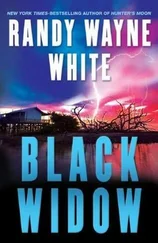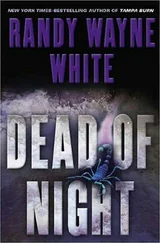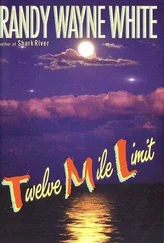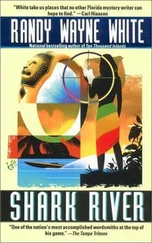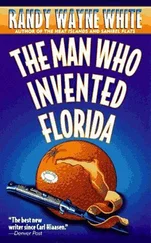He didn’t comment, instead kept his eyes fixed on the moonscape of trees as we carved our way through switchbacks that veered east or west, then straightened northward. Soon we came to the fork he had described. I asked, “Think we should go to the right?”
“Definitely,” he answered.
We were both thinking what could not be said: a chimpanzee would have to cross the river to follow us if we veered right. It didn’t worry me that Theo had mentioned swimming with Oliver as a child. Even if a chimp was pursing us-which was difficult to believe-it would be impossible for him to keep up if he had to take to the water. I said, “Good choice,” and swung the boat northeast.
Like a funnel, the river narrowed. Shadows spattered the water with moonlight. Frogs trilled a seesaw chorus and fish boiled at our approach. After a few minutes, I began to relax a little. So did Belton. He said, “I think we’re in the clear. They might watch the highways, but they can’t catch us here.”
I hefted the gas tank. It was half full, which I told him.
“Plenty of fuel,” he said. “That’s something else in our favor. How are you feeling? Still sleepy from the Benadryl?”
I had been stifling yawns, was desperate to close my eyes, but said, “We’re not stopping until we run out of river. And if we do, I think we should hike north on foot. There’s a road somewhere to the north.” I wasn’t sure that was true but tried to come across as confident.
Belton, sounding tired himself, said, “It’s almost eleven-thirty.”
“I’m fine,” I replied. “The numbness in my arm is totally gone. It’s doesn’t seem that late to me.”
His head drooped for a moment-no, it was a nod. “I was thinking about the spot I mentioned. The one Carmelo wouldn’t risk his propeller to see? If memory serves, it should be a mile or so ahead. The remains of another homestead, although god knows if there’s anything left. Google Earth doesn’t show much, but people lived there. Kenneth found the spot on a map from 1858. I have no idea if he ever made it there to search.”
“Who owns the property now?”
“It’s part of a huge private tract. Cattle or sugarcane, something like fifty thousand acres. That much land, it’s possible no one has been there for years. Just cows, maybe the odd boater. But no roads to it.”
“Do you remember anything else from the maps? What about ranch houses? The road to Arcadia has to pass somewhere close to here.” I motioned east. “Doesn’t that look like cattle pasture through those trees? And the smoke is getting stronger. Most big ranches do controlled burns to avoid forest fires come summer. I’m guessing a ranch house can’t be far.”
“Hannah,” he said gently, “I don’t care what you say, you’re exhausted. Why not curl up on the deck and let me steer for a while? I’ll wake you if I see something.”
I shook my head. “Not until we’re out of this mess. I wish we had a chart or something. It’s ridiculous how much I’ve come to depend on a GPS. I think it screws up a person’s natural sense of direction. Our dependency, you know? The biologist I was dating, I don’t know how many times he told me the same thing.”
Belton looked at me. “You don’t trust me with the gun or the boat, do you? Why?”
“I’m a decent shot and I’m not afraid to use it,” I said. “It’s not a matter of trust because-”
That’s as far as I got. A boat length ahead, an animal surfaced-a manatee or alligator, its back a yard wide, glistening like tar. I shoved the tiller hard to the right but too late. The boat jolted beneath us while the outboard kicked itself free of the water, propeller screaming, and I was nearly thrown overboard. Belton shouted something and fell forward. He would have tumbled off if I hadn’t grabbed his shirt. I jerked the tiller clear and held tight until the boat settled under us.
“What the hell was that?” The man got to his knees, a little dazed. “My glasses? Where’d they go? Damn it.”
I shifted into neutral and studied the water. A series of oily swirls would have meant we’d hit a manatee, but the surface remained flat, pale. “An alligator,” I said. “We must have hit a gator. That thing was huge.” I took my flashlight from the bag. “I hope your glasses didn’t go overboard. I don’t want to blind you-watch your eyes.”
“Are you hurt?”
“Move your feet,” I said. “I don’t see them.” A second later, though, I did, the frame and lenses in good shape. I cleaned the glasses on my blouse and placed them in his hands.
Belton, after squinting experimentally, said, “Maybe it was a log. I damn near went over the side. Are you sure you’re okay?”
“Logs don’t surface, then submerge. Or maybe a manatee, but I doubt it. In a river this narrow, yeah… a gator, it had to be a big gator.”
“Well, at least the engine’s running. There can’t be any serious damage.”
I thought so, too, until I shifted into forward gear and twisted the throttle. The outboard revved with plenty of power yet we continued to drift sideways toward the bank. I switched the engine off.
“What’s wrong?”
I said, “We must’ve sheared a cotter pin-the thing that holds the propeller to the hub. Sometimes people keep an extra pin taped under the cowling. Hang on, I’ll check.” I tried not to sound nervous but was. The ramifications hadn’t hit me fully, but enough to realize we were in the middle of nowhere, nothing to drink, no food, and it would be a long hike out if I didn’t get the boat running.
“Can you fix it? I mean, if there’s not an extra whatever.”
“Cotter pin,” I said. I hunched over the engine and held the light under my chin while I removed the cowling. Nothing hidden inside but a spare starter rope. I reseated the cowling and locked it. “We’ll have to row until we find a spot to land. Look around for a piece of wire. That’ll sometimes work instead of a pin.”
Belton muttered, “Damn, damn, damn.”
“Or a fish hook that’s the right size. I’ve got a few in my bag. But I’ll have to snip off the barbs, then get out of the boat to see if one fits. That’s why we need a place where we can pull onshore.” I took another look around, seeing trees and clouds, the river milky white. “Otherwise, I’ll have to get in the water-and I don’t want to do that.”
“Not if you’re right about what we hit,” he said, then helped me fit the oars into the oarlocks so we could take turns rowing. A few minutes later, I realized we had another problem: water sloshed from the stern forward with every stroke of the oars. I suspected the cause: aluminum boats are riveted and welded, the collision had opened a seam in the hull.
The difference between a leaking boat and sinking boat depends on how the people aboard respond. I didn’t say a word even when my shoes were soaked.
***
IT WAS AFTER midnight before I found a spot where the bank, instead of being steeply wooded, angled gently onto a patch of sandbar. I used the oars to beach the boat engine first, then got out. Only then did Belton ask, “How’d all this water get in here?”
I said, “I’m sloppy when it comes to rowing, I guess. Help me pull up farther so I don’t have to stand in water to fix the prop.”
It wasn’t easy because of the extra weight. Belton had once been a powerful man. His lack of strength frustrated him. Finally he said, “I’ll see if I can find an old beer can or something to bail with,” then tottered off in a way that told me he was stiff and sore. But he stopped when he got to the top of the bank and cupped his ears to listen. I pretended not to notice yet didn’t move until he spoke. “I think Theo and Carmelo gave up,” he said. “Your hearing’s probably better. What do you think?”
Читать дальше
